Ford offers it — starting with the compact and mainstream Focus! So does Toyota. And so do BMW, Mercedes-Benz, and Audi. But GM, along with its luxury Cadillac and Buick divisions, only offers parking sensors in its vehicles. So the question is, is GM working on such a setup and, if so, when will it come to market?
Now, a self-parking system may not be as crucial as say having a multitude of vehicles in various highly-shopped segments… but as far as competition goes, it’s a competitive disadvantage that makes GM’s competitors look more technologically-advanced than The General itself.
Is something like this even of remote importance? Sound off in the comments!



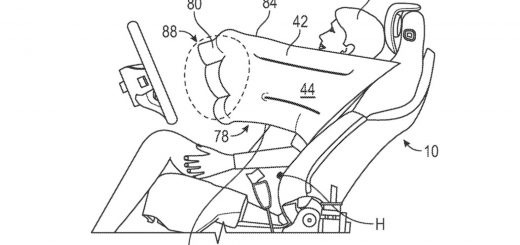



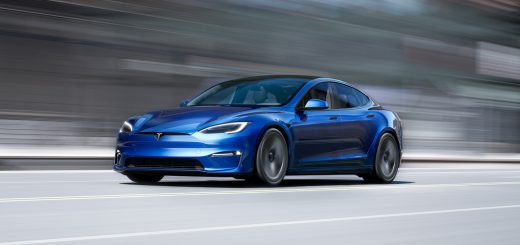
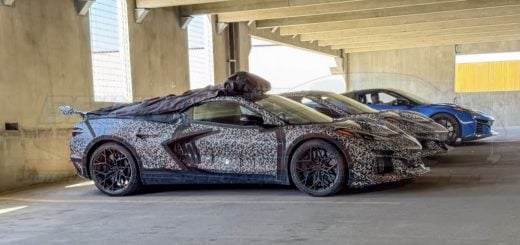




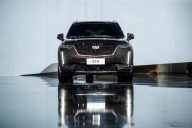
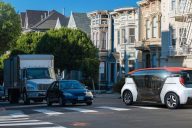
Comments
I think they should offer it but then again if people don’t live in places that has a lot of parallel parking why the needs to have one where majority of the parking are just parkings tht we see in grocery stores? Yes Toyota offers both but how many customers will choose this feature?
I think I have remembered I started this argument about how come GM don’t have this feature on their cars and some people says that part of the reason was that some of the new vehicles are still using platforms that are ancient or starting from 2005 and on and only newer platforms like Alpha will get it.
Yeah, that was in reference to the old and archaic platforms like the W body, which wouldn’t have gotten any engineering investment from GM in the last several years of its life. But I see no reason why the system can’t be integrated into vehicles based on Gamma, Delta, Epsilon, Theta, Lambda, or Alpha platforms. These are all modern and were made from the get-to to accommodate sensors…
What about trucks?
Considering that the trucks are about to be replaced across the board, those as well.
Because I don’t think that the f150 has it right?
Seemingly, there are not as many parallel parking spots as there used to be. It is most likely a small concern that would be costly to buy and costly for GM to develop.
Or they should develop one and take it up a notch compare to the competitors.
It would be interesting to see the sales percentages for these systems. I’ll bet it’s pretty low.
You’re likely right. But I’d guess they are highly, highly profitable and bring such delight to those who buy them that the customers who do opt for the feature love and swear by their model and brand.
Honestly none of them are perfected enough to the point where its a luxury. The only reason companies have them is to say they have them. I would rather see Cadillacs have what they are calling “Super Cruise”, instead of useless self parking systems.
Oh I don’t know about them not being refined enough. The system in the new Focus worked perfectly for me on a demo vehicle at a dealer. And the setup in the Lexus LS was spot-on, as well.
I’ll put it simply.
A Ford Focus can park itself, wereas a Cadillac CTS cannot.
It may seem like a trivial piece of technology (I know lots of do it yourselfers will shun it), but if drivers continue to see parrallel parking as a chore/demanding challenge, than a Focus really is better than a CTS on that merit.
It’s not for everyone, but it is a strong selling point and something that can boost the appeal of a car to a wider audience.
Even if I didn’t aim high at the CTS, the Cruze itself can be
“A Ford Focus can park itself”. That is not entirely true. The Focus will steer itself and brake, but you have to shift gears between Drive and Reverse.
If a GM vehicle has electric steering and could shift gear by itself (not easy to do), it only needs the parking sensor and active braking, and do it all by itself.
I don’t think the Ford system brake themselves. I think their system only steers themselves and you have to put it on reverse and brake by yourself.
I agree completely. Furthermore, the visibility in these modern cars make parallel parking a challenge especially for the aging boomer demographic.
If you are a suburban American there is no need to parallel park. If you live in a big city. It’s cheaper to double park.
I agree. Though parallel parking is very rarely needed outside the really big cities, consumers see the technology and see it as a very advanced technology and therefore the car is awesome. So, I don’t think it’s necessary, but it is a good selling point.
If you need such a system to park your car, stay the hell off my street. I don’t want you near my car. Learn to drive. Better yet, take the bus.
You don’t own any street, let alone the one you live on.
Furthermore, why shouldn’t they be near your car? It’s self-parking system, not car-mounted Howitzer cannon.
FSBO 1 Street 4 lanes plenty of parking fresh paint yellow and white lines.
No realtors please.
I am going to say though ford offers this system pretty much on almost all of their cars whereas Toyota offer this exclusively on Prius and pretty much all the Lexus models
My lawn mower can park itself. lol
My lawn mower is one better. It doesn’t use gas!
If you have trouble parking there is a simple solution just buy a parked car.
The problem with these self-parking systems is that they require a much larger space than you usually find AND it takes too long to perform the task. When you combine the ugly urban traffic (I live in LA and it’s rarely good), streets that were built decades ago with very little room between street parking and traffic lanes and tight parking spaces, you don’t have the luxury or crawling along until you find a space that the sensors say will work. Then you have to pull up, position the car and perform the parking function. All this while you block one lane of traffic.
In reality, I don’t think I’ve ever seen anyone actually using the self-park system. All the demonstrations I’ve seen involve little or no traffic and a parking spot big enough for an Electra 225 with room to spare. With a space that big, I don’t even need to parallel park – I can drive right into it, back up, pull forward and I’m done.
So I think these self-parallel park systems are little more than a gimmick.
That said, given all the sensors, EPS and powerful computing on board a modern vehicle, I think GM needs to offer it – at least on Cadillac and probably Buick. I’m pretty sure the technology is available “off the shelf” from the OEM suppliers like Delphi, ZF, Bosch, etc. I’m not sure what the excuse is for not offering it. [I used to think radar or adaptive cruise control was a gimmick – unit I bought a car with it. It changed my life for the better and I use it all the time. Now I can’t imagine buying another car without this fantastic feature.]
What happens if the parking sensors fail during a manuever? What if a careless driver blames his automated system for crunching a fender? How to clarify between an insurance claim and a warranty claim?
The driver is in control of the parking function at all times. If the driver isn’t watching while the car is moving, it’s the driver’s fault. Ditto for back up sensors and parking cameras.
Unless someone can prove that “the car went wild,” any accident will be the fault of the driver.
While it’s not the same issue, look at all the lawsuits against Toyota for sudden acceleration. It’s a daunting task to manage all the claims, but there is no proof of any electronic or mechanical defect with the throttle systems or brakes. And as has been proven in the past, most of these horrible accidents are really driver error. People think they are hitting the brakes but instead are hitting the accelerator. Ask Audi. Have you heard about any new Toyota sudden acceleration cases? It’s not like everyone got their car fixed and there are millions of recalled vehicles. Yet there are no new cases (or at least ones that have been publicized). Bottom line, with any of these electronic driver’s aids, the responsibility ultimately rests with the driver unless he/she can prove a defect.